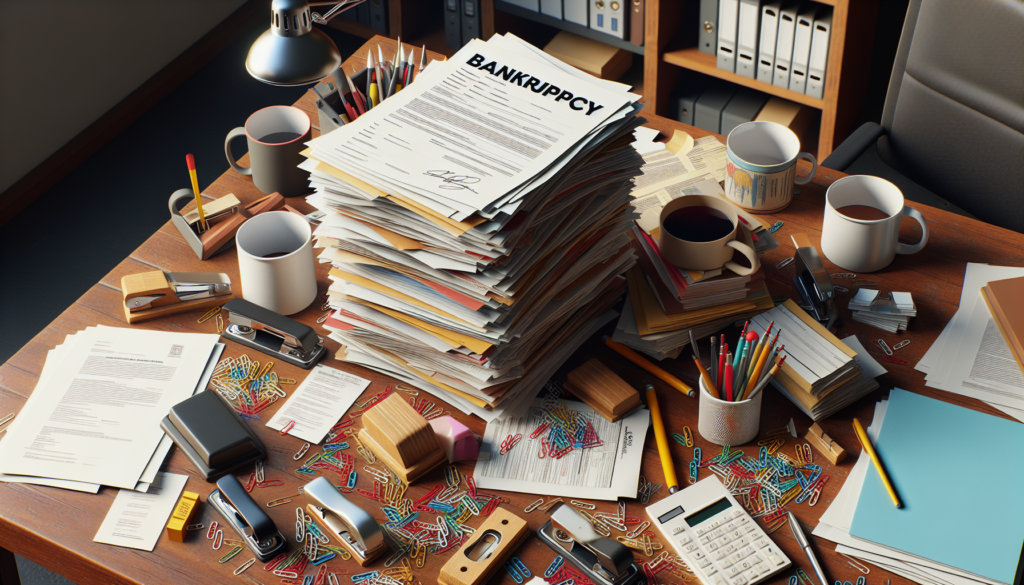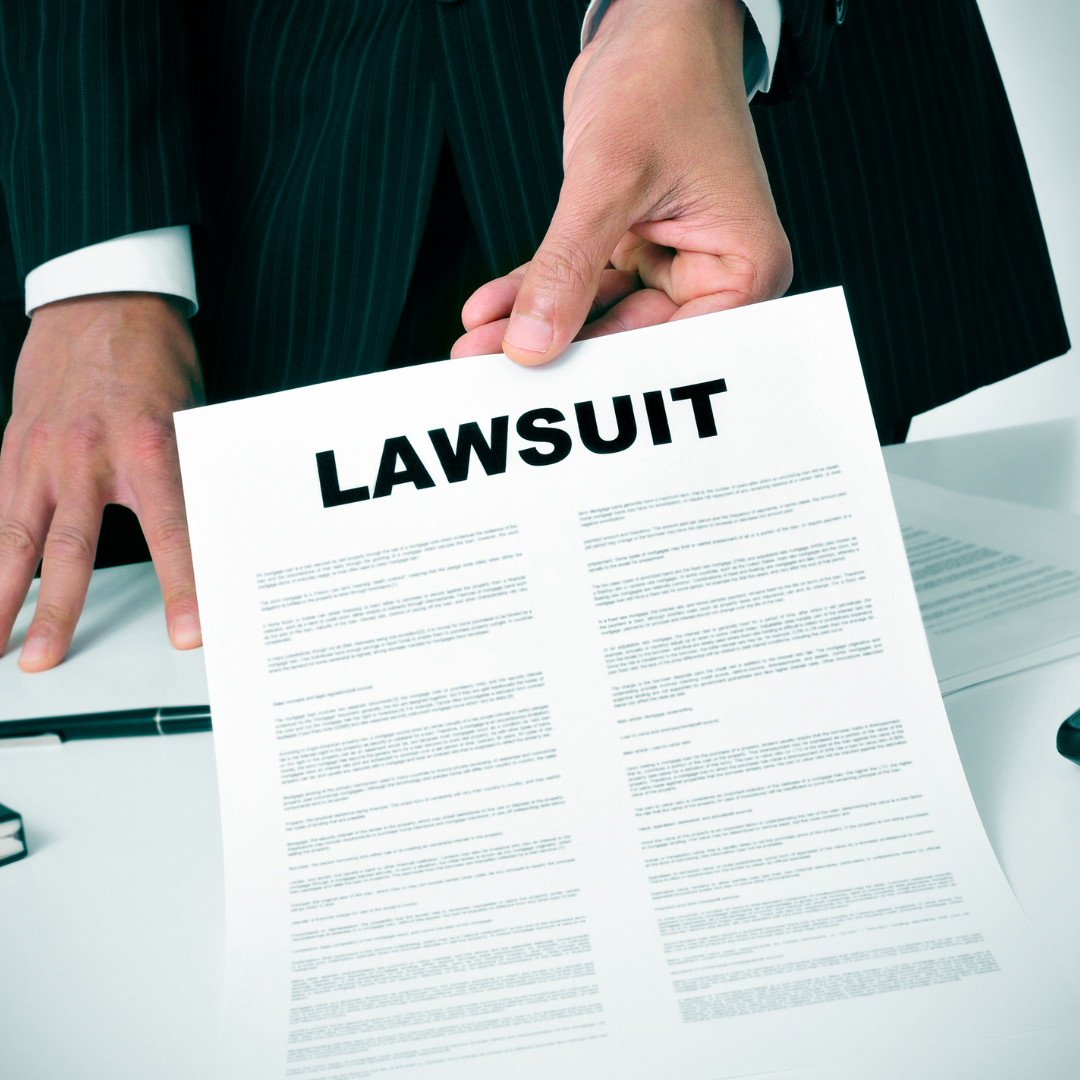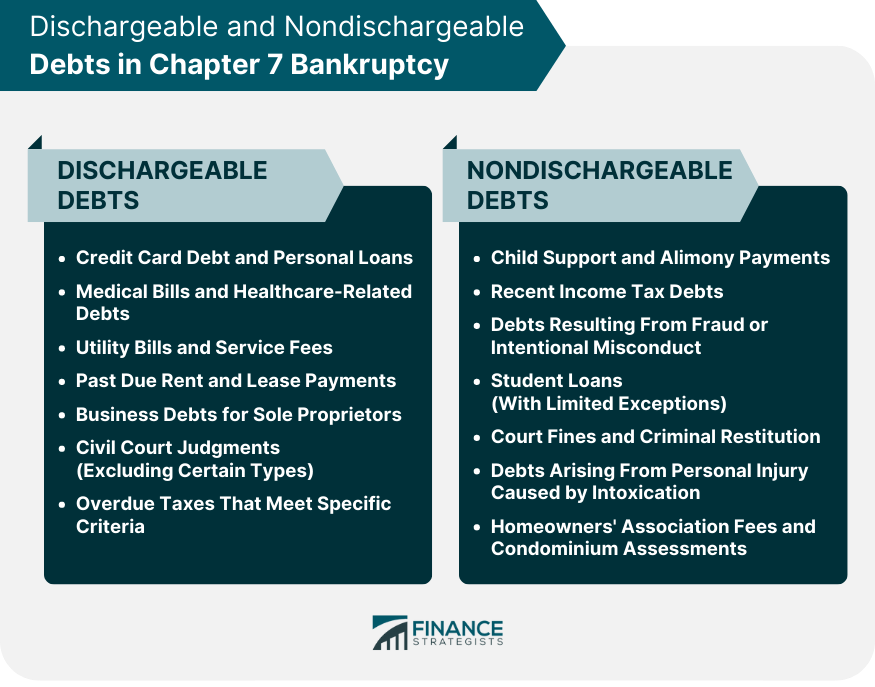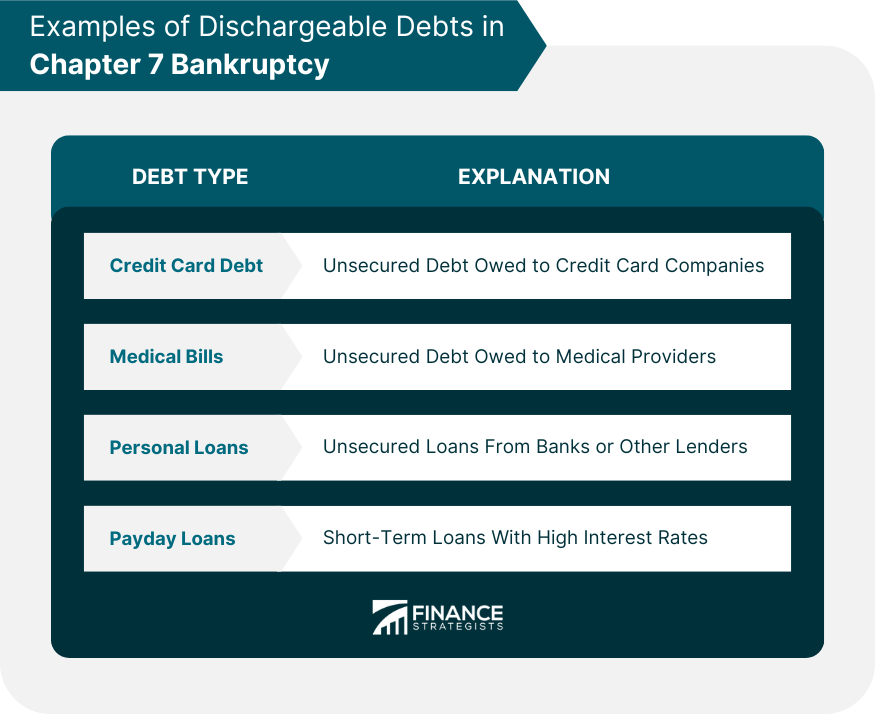Chapter 7 Bankruptcy Non Dischargeable Debts - Debts covered by a reaffirmation agreement. This section specifies which of the debtor’s debts are not discharged in a bankruptcy case, and certain procedures for effectuating. Although bankruptcy erases many types of debt, not all obligations are discharged. Debts dischargeable in a chapter 13, but not in chapter 7, include debts for willful and malicious injury to property, debts incurred to pay non. The chapter 7 bankruptcy discharge order lists the following nondischargeable debts: One of the primary purposes of bankruptcy is to discharge certain debts to give an honest individual debtor a fresh start. the debtor has. Also, debts are treated differently depending on.
The chapter 7 bankruptcy discharge order lists the following nondischargeable debts: Debts covered by a reaffirmation agreement. Also, debts are treated differently depending on. Although bankruptcy erases many types of debt, not all obligations are discharged. Debts dischargeable in a chapter 13, but not in chapter 7, include debts for willful and malicious injury to property, debts incurred to pay non. This section specifies which of the debtor’s debts are not discharged in a bankruptcy case, and certain procedures for effectuating. One of the primary purposes of bankruptcy is to discharge certain debts to give an honest individual debtor a fresh start. the debtor has.
Debts covered by a reaffirmation agreement. Although bankruptcy erases many types of debt, not all obligations are discharged. This section specifies which of the debtor’s debts are not discharged in a bankruptcy case, and certain procedures for effectuating. One of the primary purposes of bankruptcy is to discharge certain debts to give an honest individual debtor a fresh start. the debtor has. Debts dischargeable in a chapter 13, but not in chapter 7, include debts for willful and malicious injury to property, debts incurred to pay non. The chapter 7 bankruptcy discharge order lists the following nondischargeable debts: Also, debts are treated differently depending on.
Chapter 7 Bankruptcy Video ExamPrep.ai CPA Review
One of the primary purposes of bankruptcy is to discharge certain debts to give an honest individual debtor a fresh start. the debtor has. Debts covered by a reaffirmation agreement. Although bankruptcy erases many types of debt, not all obligations are discharged. Debts dischargeable in a chapter 13, but not in chapter 7, include debts for willful and malicious injury.
“I Can’t Afford Bankruptcy” ppt download
Debts dischargeable in a chapter 13, but not in chapter 7, include debts for willful and malicious injury to property, debts incurred to pay non. This section specifies which of the debtor’s debts are not discharged in a bankruptcy case, and certain procedures for effectuating. Although bankruptcy erases many types of debt, not all obligations are discharged. One of the.
Does Chapter 7 Bankruptcy Wipe Out All Debt in New York? Michael H
Debts dischargeable in a chapter 13, but not in chapter 7, include debts for willful and malicious injury to property, debts incurred to pay non. Although bankruptcy erases many types of debt, not all obligations are discharged. This section specifies which of the debtor’s debts are not discharged in a bankruptcy case, and certain procedures for effectuating. Also, debts are.
Does Chapter 7 wipe out all debt? Leia aqui What debts are not
Debts covered by a reaffirmation agreement. One of the primary purposes of bankruptcy is to discharge certain debts to give an honest individual debtor a fresh start. the debtor has. Although bankruptcy erases many types of debt, not all obligations are discharged. This section specifies which of the debtor’s debts are not discharged in a bankruptcy case, and certain procedures.
What Cannot Be Discharged in a Chapter 7 Bankruptcy Know the Limits
Debts dischargeable in a chapter 13, but not in chapter 7, include debts for willful and malicious injury to property, debts incurred to pay non. Debts covered by a reaffirmation agreement. Also, debts are treated differently depending on. The chapter 7 bankruptcy discharge order lists the following nondischargeable debts: Although bankruptcy erases many types of debt, not all obligations are.
What Is Chapter 7 Bankruptcy? A Liquidation Guide Lexington Law
One of the primary purposes of bankruptcy is to discharge certain debts to give an honest individual debtor a fresh start. the debtor has. Debts covered by a reaffirmation agreement. This section specifies which of the debtor’s debts are not discharged in a bankruptcy case, and certain procedures for effectuating. Debts dischargeable in a chapter 13, but not in chapter.
Chapter 7 Bankruptcy Myths Uncovered File 7 File 13
The chapter 7 bankruptcy discharge order lists the following nondischargeable debts: One of the primary purposes of bankruptcy is to discharge certain debts to give an honest individual debtor a fresh start. the debtor has. Also, debts are treated differently depending on. Debts covered by a reaffirmation agreement. Debts dischargeable in a chapter 13, but not in chapter 7, include.
List of NonDischargeable Debts in Bankruptcy LSS law
Debts covered by a reaffirmation agreement. Although bankruptcy erases many types of debt, not all obligations are discharged. This section specifies which of the debtor’s debts are not discharged in a bankruptcy case, and certain procedures for effectuating. The chapter 7 bankruptcy discharge order lists the following nondischargeable debts: Debts dischargeable in a chapter 13, but not in chapter 7,.
What Debts Are Discharged in Chapter 7 Bankruptcy?
This section specifies which of the debtor’s debts are not discharged in a bankruptcy case, and certain procedures for effectuating. The chapter 7 bankruptcy discharge order lists the following nondischargeable debts: One of the primary purposes of bankruptcy is to discharge certain debts to give an honest individual debtor a fresh start. the debtor has. Debts dischargeable in a chapter.
Does Chapter 7 Bankruptcy Include Student Loans? Eligibility
The chapter 7 bankruptcy discharge order lists the following nondischargeable debts: Debts dischargeable in a chapter 13, but not in chapter 7, include debts for willful and malicious injury to property, debts incurred to pay non. Although bankruptcy erases many types of debt, not all obligations are discharged. One of the primary purposes of bankruptcy is to discharge certain debts.
Although Bankruptcy Erases Many Types Of Debt, Not All Obligations Are Discharged.
The chapter 7 bankruptcy discharge order lists the following nondischargeable debts: Debts dischargeable in a chapter 13, but not in chapter 7, include debts for willful and malicious injury to property, debts incurred to pay non. This section specifies which of the debtor’s debts are not discharged in a bankruptcy case, and certain procedures for effectuating. Also, debts are treated differently depending on.
Debts Covered By A Reaffirmation Agreement.
One of the primary purposes of bankruptcy is to discharge certain debts to give an honest individual debtor a fresh start. the debtor has.


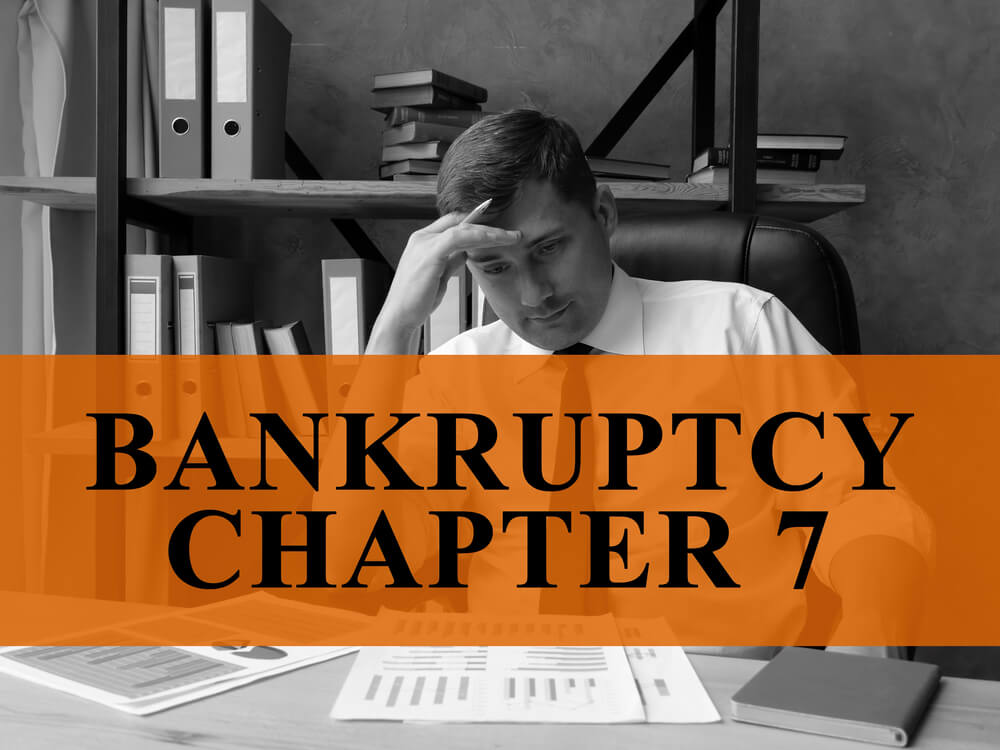
:max_bytes(150000):strip_icc()/Term-b-bankruptcy-50ca3cfd9f4146e78eabe03b64704456.jpg)


